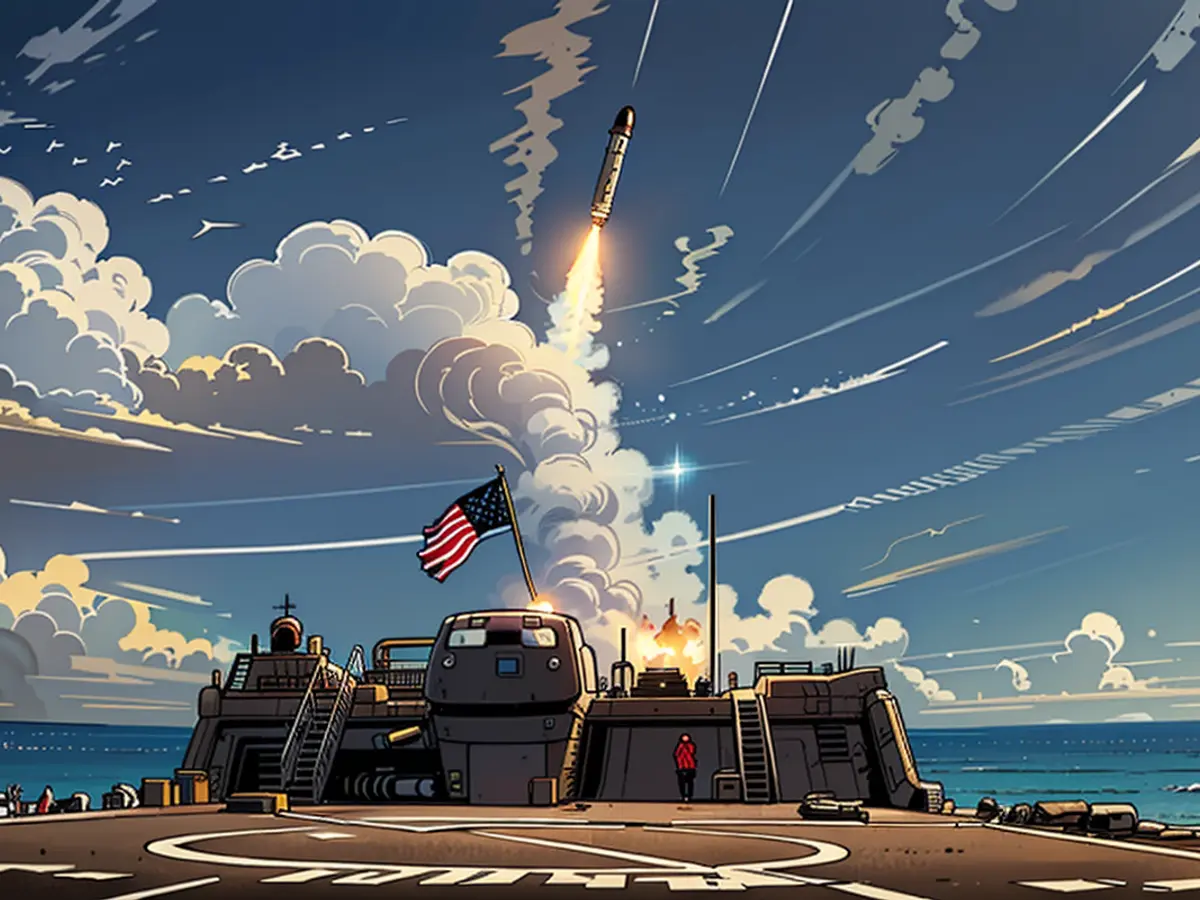Plans for US long-range weapons: Greens accuse Scholz of neglecting
The Agreement, to station US weapons systems in Germany again starting in 2026, faces divided reactions in Germany. While Defense Minister Pistorius welcomes the plans, many are concerned about a new arms race. The Greens criticize the way the announcement was made.
The German-American agreement to station US long-range missiles in Germany has raised concerns about a new arms race in Germany. SPD foreign policy expert Ralf Stegner criticized the development as dangerous. The Greens accused Chancellor Olaf Scholz of not explaining the decision adequately. Defense Minister Boris Pistorius welcomed the stationing plans: US weapons could close "a significant capability gap in Europe."
Germany and the US announced on a Wednesday evening that the US army intends to station long-range weapons in Germany again - after more than 20 years pause - starting in 2026, for better deterrence against Russia. These weapons "will have significantly greater range than the currently deployed land-based systems in Europe," according to a joint statement.
SPD Bundestag member Stegner reacted to the announcement in the Funke newspapers with concern: "This all leads to another arms race," Stegner said. "The world will not be safer. On the contrary: We are entering a spiral where the world becomes increasingly dangerous." Defense experts from the Greens criticized that Chancellor Scholz did not publicly justify such a far-reaching decision as the raket stationing. The lack of clarity "can fuel fears and leave room for disinformation and incitement," said Greens MP Sara Nanni to the "Rheinische Post." "The Chancellor should explain himself soon."
Strack-Zimmermann: "Strategically of immense importance"
Green defense expert Agnieszka Brugger told the Funke newspapers: "I can't understand the Chancellor's speechlessness once again." She added: "Whoever makes such a weighty decision must also explain and justify it." In substance, Brugger supported the decision: "One responds best to Putin's threats and brutality with strength, unity, and protection."
The stationing of US missiles is supposed to be temporary, according to government statements - until Germany and European allies themselves produce and station such weapons. Germany and France have already agreed to develop a joint long-range missile, other European countries are to participate.
Minister Pistorius told Deutschlandfunk that the US missiles are expected to be accompanied by the "clear expectation of the US that we invest in the development and procurement of such capabilities ourselves." The US missiles are intended as a kind of "bridge" until the development of our own capabilities: "This temporary stationing from next year will give us exactly the time we need for that."
FDP European politician and defense expert Marie-Agnes Strack-Zimmermann welcomed the stationing decision: "This is strategically important for the alliance of immense significance," she told the "Rheinische Post." "Germany is the pivotal point of Europe, especially when it comes to deploying troops from the West towards the East" - therefore, the decision "makes perfect sense." The Union also expressed approval. "The long-range weapons will make a significant contribution to long-term and credible deterrence," explained its foreign policy expert Johann Wadephul.
## Left warns against arms race
Sharp criticism and drastic warnings came from opposition parties AfD, BSW, and The Left. "The deployment makes Germany a target," explained AfD leader Tino Chrupalla. Scholz allows "Germany's relationship with Russia to be permanently damaged, and we risk falling back into the pattern of East-West conflict."
BSW chairwoman Sahra Wagenknecht told "Der Spiegel": "The stationing of additional attack missiles on German soil does not improve our security, but rather increases the risk that Germany itself becomes a battlefield, with devastating consequences for all those living here."
The defense policy spokesperson for The Left in the Bundestag, Dietmar Bartsch, told "Rheinische Post": "I find this decision highly problematic because the arms race under the guise of deterrence is being further escalated."
The SPD, led by foreign policy expert Ralf Stegner, voiced concerns about the potential for a new arms race as a result of the German-American agreement. The Greens accused Chancellor Olaf Scholz of not adequately explaining the decision to station US weapons in Germany. Meanwhile, the Union faction, represented by Johann Wadephul, expressed support for the move, stating that the long-range weapons would contribute to long-term deterrence. Additionally, the United States of America's defence policy expert, Marie-Agnes Strack-Zimmermann, welcomed the decision, seeing it as strategically important.








